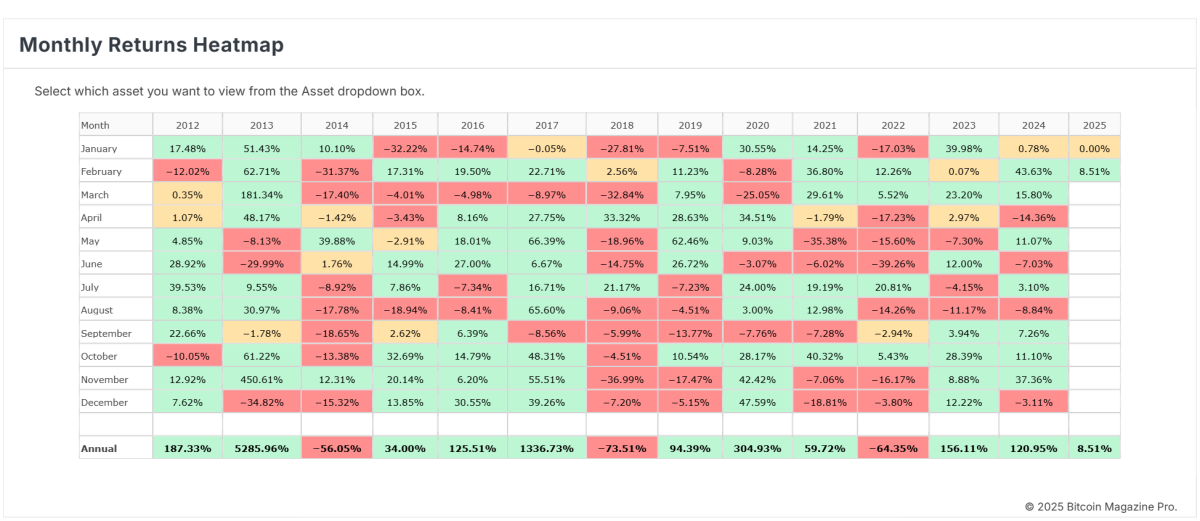Introduction to Wealthy Mindsets
Wealthy individuals often exhibit distinct principles and mindsets that set them apart from the average person regarding financial management. At the core of these differences lies a growth-oriented mindset, which emphasizes the potential for personal and professional development. Rather than viewing financial education as a series of one-time events, wealthy individuals cultivate a lifelong learning approach. They actively seek opportunities to expand their knowledge about investments, asset management, and various financial strategies, enabling them to make informed decisions.
Discipline is another crucial element that characterizes the financial behaviors of successful people. Wealthy individuals tend to prioritize long-term goals over short-term gratification. This discipline manifests in their budgeting practices, savings habits, and investment choices, as they consistently set aside resources for future needs while resisting impulsive spending. By exercising self-control, they pave the way for financial stability which ultimately leads to the accumulation of wealth over time.
Moreover, wealthy people demonstrate a willingness to learn from their past experiences, including mistakes and failures. They understand that setbacks provide valuable lessons that can guide future actions. This reflective practice allows them to adapt their strategies and refine their approach to financial management continuously. In contrast, many individuals may shy away from financial education due to fear of failure or reluctance to face unfamiliar concepts, which can hinder their wealth-building potential.
In summary, the mindsets and practices of wealthy individuals reflect a combination of growth orientation, discipline, and a commitment to continuous learning. By adopting these principles, anyone can begin to shift their perspective on money management, laying the groundwork necessary for creating and sustaining wealth over time.
Investing Wisely: The Power of Smart Investments
Wealthy individuals typically distinguish themselves by their strategic approach to investing, which emphasizes long-term growth over immediate financial returns. This perspective revolves around the understanding that wealth accumulation is not solely about making quick profits; rather, it involves a careful analysis of potential investments and their enduring value. For instance, affluent investors tend to favor long-term investments, such as stocks or real estate, which can appreciate significantly over time, providing a more stable financial foundation.
Diversification is another cornerstone of wealth management among affluent individuals. By spreading investments across various sectors and asset classes, they mitigate potential risks associated with market volatility. This strategy ensures that if one investment performs poorly, the others can potentially offset the losses. Commonly employed investment vehicles include mutual funds, index funds, and exchange-traded funds (ETFs), which allow for easy diversification while minimizing associated risks.
Furthermore, the wealthy often prioritize the strategic use of assets to create passive income streams. This approach involves leveraging their investments to generate ongoing revenue without the need for active management. Rental properties, dividend-yielding stocks, and peer-to-peer lending are prime examples of how affluent individuals can create consistent cash flow. By utilizing such investments, they can enhance their overall financial position while allowing their assets to work for them, rather than the other way around.
In conclusion, the investing strategies of wealthy individuals reveal a careful balance between risk management and the pursuit of long-term gains. Their focus on diversification, strategic asset utilization, and a preference for long-term investment horizons are key components of their financial success, which can serve as a valuable model for others seeking to enhance their own wealth-building practices.
The Art of Budgeting: Living Below Your Means
Wealthy individuals often employ budgeting as a fundamental practice in managing their finances effectively. The art of budgeting involves crafting a comprehensive financial plan that helps them live below their means, which is a crucial factor contributing to their financial success. This disciplined approach allows them to allocate resources toward investments and savings while still covering necessary expenses.
One technique that affluent individuals frequently utilize is the zero-based budgeting method. This strategy requires them to allocate every dollar of their income to specific expenses, savings, or investments, effectively leaving no money unaccounted for. By doing so, they are forced to critically evaluate their spending habits and prioritize essential purchases. For example, instead of impulsively splurging on luxury items, they might identify the most important expenses that align with their financial goals and focus on those.
Additionally, wealthy people often keep meticulous records of their spending habits. They leverage various tracking tools, such as apps or spreadsheets, to monitor their expenses regularly. This practice not only provides insight into where their money is going but also allows them to identify areas for potential savings. By recognizing unnecessary expenditures, they can consciously decide to cut back on discretionary spending, reinforcing the principle of living below their means.
Resisting the pressures of consumerism is another hallmark of effective budgeting among wealthy individuals. They are typically not swayed by societal norms that encourage rampant spending and materialism. Instead, they cultivate a mindset of financial responsibility, understanding that true wealth comes from mindful spending and strategic investing, rather than merely accumulating possessions. This perspective enables them to focus on long-term financial health over fleeting desires.
Leveraging Debt: Understanding Good vs. Bad Debt
Wealthy individuals often possess a nuanced understanding of debt, distinguishing clearly between what is deemed ‘good debt’ and ‘bad debt.’ This classification is crucial because it influences borrowing strategies that can lead to wealth accumulation or financial distress. Good debt typically includes loans that are used to finance investments that are likely to appreciate over time or generate income. For instance, taking on debt to invest in real estate can be classified as good debt, as property values generally increase and provide a return on investment through rental income or eventual resale. Similarly, using borrowed funds to invest in a business can yield significant returns, provided the venture is well-researched and viable.
On the other hand, bad debt encompasses loans that do not offer financial benefits or are associated with high-interest rates, such as credit card debt or personal loans for consumption purposes. When individuals use credit for non-essential purchases, they fall into a cycle of debt that can prove difficult to escape. Wealthy individuals understand the perils associated with this type of borrowing, often avoiding it altogether, thereby cultivating their financial health.
Encouraging a shift in perspective about debt is essential for improving financial literacy. Rather than viewing all debt as detrimental, it can be advantageous to consider how strategic borrowing can lead to positive outcomes. Wealthy individuals tend to emphasize the importance of leveraging good debt while steering clear of bad debt, thereby enhancing their financial portfolios. As such, making informed and strategic borrowing choices is integral to achieving long-term financial success, enabling individuals to utilize debt as a tool for growth rather than a hindrance to financial stability.
Creating Multiple Income Streams
Wealthy individuals often employ the strategy of creating multiple income streams to enhance their financial security and maximize their wealth accumulation. Relying solely on a single source of income can be risky, particularly in an unpredictable economic environment where job security may be threatened. Therefore, diversifying income sources is a prudent approach that not only mitigates risks but also opens up new opportunities for financial growth.
There are several avenues through which individuals can establish additional income streams. One common method is through side businesses. Many affluent people leverage their skills, hobbies, or interests to create small enterprises that run parallel to their primary jobs. This may include online retail, consulting services, or content creation. Such ventures can generate significant revenue, especially when the entrepreneur is passionate and knowledgeable about their field.
Another popular avenue is investing. Wealthy individuals often dedicate a portion of their earnings to various investment vehicles, such as stocks, bonds, real estate, or mutual funds. These assets can produce passive income, allowing investors to benefit from their money working for them. Additionally, individuals may choose to diversify further by entering partnerships or investing in startups, which can offer high returns when approached with a well-researched strategy.
Freelance work is another effective means of generating supplementary income. Professionals in various fields, including writing, graphic design, or software development, often take on freelance projects in addition to their full-time employment. This flexibility allows them to enhance their income while maintaining a balanced work-life dynamic.
In summary, wealthy individuals strategically create multiple income streams, such as side businesses, investments, and freelance work, to build financial stability and foster growth. This approach not only minimizes risk but also empowers individuals to take control of their financial destinies.
Prioritizing Financial Education: Knowledge as Power
Wealthy individuals understand that financial education is a cornerstone of their success. The pursuit of knowledge surrounding market trends, investment strategies, and personal finance management is not a one-time endeavor but a lifelong commitment. This dedication positions them to make informed decisions that significantly impact their financial well-being.
Staying informed about market fluctuations and emerging investment opportunities allows wealthy individuals to pivot their strategies effectively. For instance, accessing resources such as specialized books and articles can provide insights into best practices and fundamentals that drive effective financial management. These written materials serve as a foundation for understanding complex financial concepts, ultimately translating into better investment decisions.
In addition to written resources, interactive learning methods, such as seminars and workshops, play an essential role in enhancing financial education. Engaging directly with financial experts and industry leaders facilitates networking opportunities and access to valuable insights, which can lead to sound investment strategies. Those who actively participate in these learning environments often gain a deeper understanding of current market dynamics.
Mentorship can also be a critical aspect of financial education. Wealthy individuals frequently seek out mentors who have successfully navigated the financial landscape. Such relationships foster shared learning experiences and lead to a richer understanding of advanced financial concepts, enabling them to apply winning strategies in their own lives.
Furthermore, the rise of online courses has democratized access to quality financial education. With platforms offering programs tailored to various levels of expertise, wealthy individuals can refine their knowledge at their own pace. This flexible approach enables them to stay abreast of financial innovations and adapt their strategies accordingly.
Ultimately, prioritizing financial education demonstrates the proactive stance wealthy individuals take in managing their affairs and maximizing their wealth potential.
Utilizing Professional Advisors: Teaming with Experts
Wealthy individuals often rely on a cadre of professional advisors to help them navigate the complexities of financial management. Engaging a financial advisor provides an opportunity to leverage specialized expertise that can significantly enhance investment strategies and overall wealth growth. These professionals possess the knowledge and experience necessary to tailor plans that align with their clients’ unique financial goals, ranging from asset allocation to retirement planning.
Tax professionals also play a critical role in this advisory team. They ensure compliance with ever-changing tax laws and regulations, which can be particularly intricate for those with substantial investments and multiple income streams. By crafting tax-efficient strategies, they help their clients minimize liabilities, thereby allowing more capital to be reinvested. The ongoing consultation with tax experts allows wealthy individuals to make informed decisions that optimize their fiscal outcomes.
Investment strategists further contribute by providing insights into market trends and opportunities. They analyze complex data and economic indicators, offering informed recommendations that can guide wealthier individuals toward lucrative investments. In an environment where markets can fluctuate rapidly, the ability to make well-timed financial moves can set affluent individuals apart from the crowd.
Moreover, the integration of these advisory services creates a collaborative ecosystem that ensures a holistic approach to financial planning. Engaging with a team of experts promotes informed decision-making, ultimately safeguarding and potentially growing wealth. Wealthy individuals understand the importance of surrounding themselves with knowledgeable advisors, utilizing their insights not merely as a survival tactic but as a proactive measure for enduring financial success. By doing so, they can achieve a balance of risk and reward while remaining compliant with legal and financial obligations.
Embracing a Giving Mentality: Philanthropy and Wealth
Philanthropy plays a crucial role in the lives of many wealthy individuals, who often prioritize giving back to society as a key aspect of their financial strategy. This giving mentality not only demonstrates a commitment to social responsibility but also helps to cultivate a positive public image. By engaging in charitable endeavors, many affluent individuals establish themselves as leaders in their communities, which frequently fosters goodwill and enhances their personal and professional reputations.
The impact of charitable contributions is substantial, as they can address pressing societal issues ranging from poverty alleviation to education and health care access. Wealthy benefactors who strategically allocate their resources to philanthropic causes can create a ripple effect that amplifies the reach of their contributions. For instance, by funding scholarships for underprivileged students or supporting innovative health initiatives, they can help provide opportunities for individuals who might otherwise struggle to succeed. This can lead to significant transformations at the community level, showcasing how wealth can be wielded to enact positive change.
An additional benefit of philanthropy is the potential for new business opportunities that can arise from these altruistic endeavors. Engaging in charitable activities often opens doors to valuable networking possibilities, connecting wealthy individuals with like-minded philanthropists and community leaders. These relationships can subsequently lead to partnerships, collaborations, and even new ventures. Consequently, the act of giving back aligns with wealth creation, reinforcing the notion that philanthropy is not merely an act of generosity but also a strategic business decision.
In summary, the embrace of a giving mentality among affluent individuals goes beyond mere altruism. By prioritizing philanthropy, wealthy people can make a profound impact on society while simultaneously enhancing their personal brand and creating potential opportunities for growth in their careers. This intricate relationship between wealth and philanthropy illustrates a subtle yet powerful strategy that many wealthy individuals have adopted to balance their financial objectives with a commitment to social betterment.
Conclusion: The Blueprint for Financial Success
In reflecting on the subtly genius moves that wealthy individuals consistently employ with their finances, it is evident that these strategic habits significantly contribute to their financial success. The behaviors exemplified by affluent people reveal a set of principles that anyone, regardless of their current financial status, can adopt to enhance their financial standing. One of the key takeaways is the importance of disciplined saving and investing. Wealthy individuals often allocate a portion of their income towards investments that align with their long-term financial goals. This prioritization not only fosters growth but also builds a robust financial portfolio over time.
Furthermore, the strategic use of debt among affluent individuals highlights a critical lesson: leveraging debt wisely can lead to opportunities rather than complications. Instead of viewing all debt as detrimental, wealthy people often utilize it to finance ventures that yield greater returns. This approach necessitates a thorough understanding of risk management, ensuring that borrowed funds are used effectively to generate income. By focusing on the strategic deployment of resources, anyone can begin to build a framework for financial stability and prosperity.
Lastly, cultivating a mindset of continuous learning and adaptability is essential. Wealthy individuals often stay informed about market trends, investment strategies, and emerging opportunities. This proactive approach allows them to make informed decisions that align with their financial objectives. By embracing these subtle yet impactful habits, aspiring individuals can lay the groundwork for their own financial success. It is advisable for readers to consider implementing even one of these practices into their financial routine, recognizing that substantial improvements can be realized through the cumulative effect of small changes over time.










